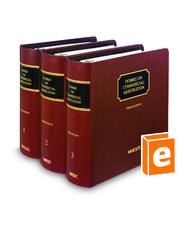
Arbitration is defined, by Black's Law Dictionary, as a dispute-resolution process in which the disputing parties choose one or more neutral third parties to make a final and binding decision resolving the dispute. The parties to the dispute may choose a third party directly by mutual agreement, or indirectly, such as by agreeing to have an arbitration organization select the third party.
Under the Federal Arbitration Act , decisions reached through arbitration are binding just like a court case is and pursuing a claim through arbitration precludes you from also raising it in the traditional court system. Arbitration is used because it is often much less expensive than litigation due to its less stringent procedural requirements.
Of the potential alternative dispute resolution methods available, arbitration is the most similar to taking your case to court. For example, while arbitrators are not subject to the Federal Rules of Evidence , they nonetheless allow the parties in dispute to enter evidence when they deem it fair. Furthermore, parties undergoing arbitration typically agree to conduct some limited form of discovery.
Cornell Legal Information Institute provides more context to arbitration.
 Handbook on Arbitration Practice, 2nd Ed
by
Handbook on Arbitration Practice, 2nd Ed
by
 Commercial Arbitration
by
Commercial Arbitration
by
 Domke on Commercial Arbitration
by
Domke on Commercial Arbitration
by
 The Law and Practice of Arbitration - 7th Edition
by
The Law and Practice of Arbitration - 7th Edition
by
 How Arbitration Works
by
How Arbitration Works
by